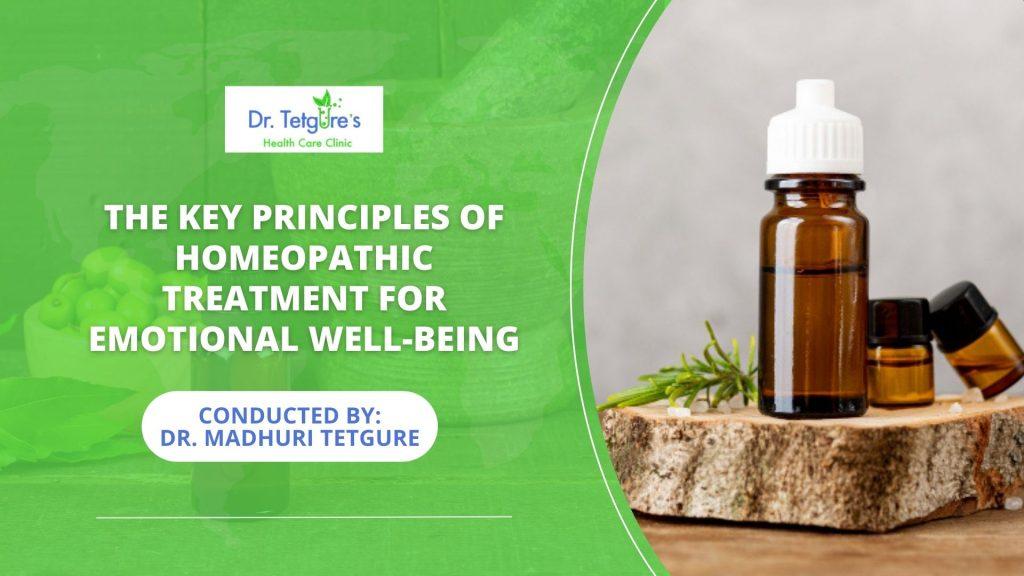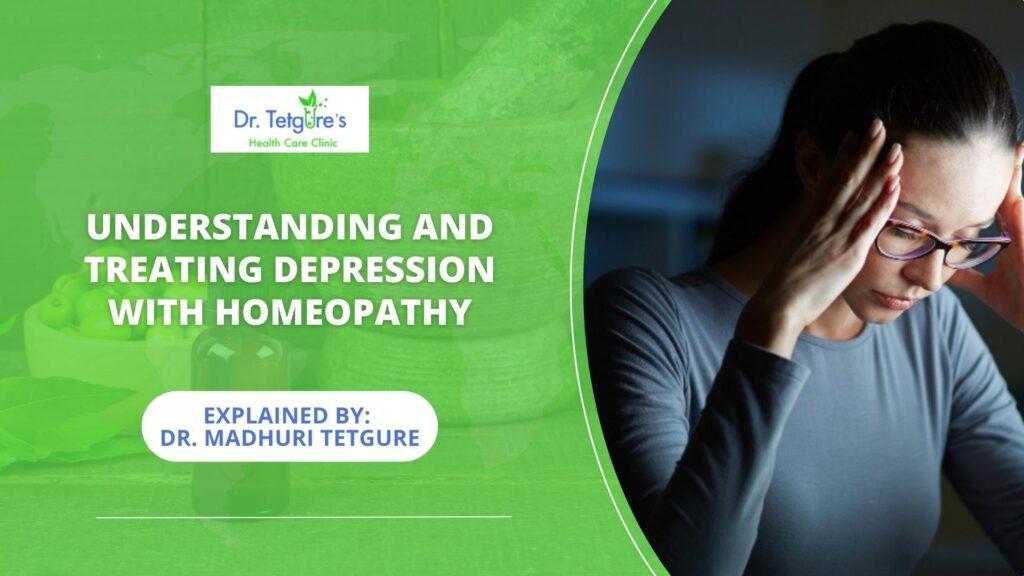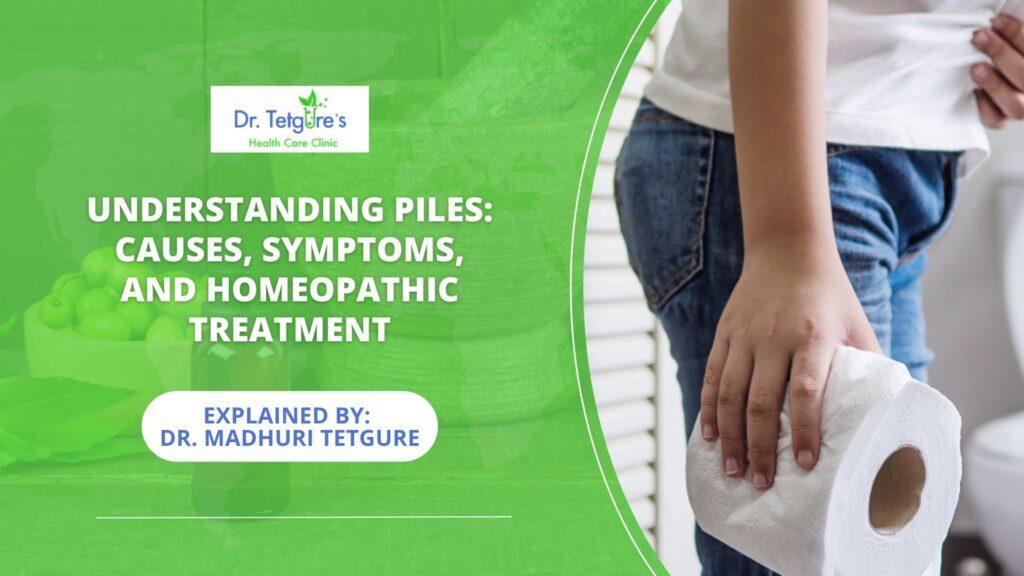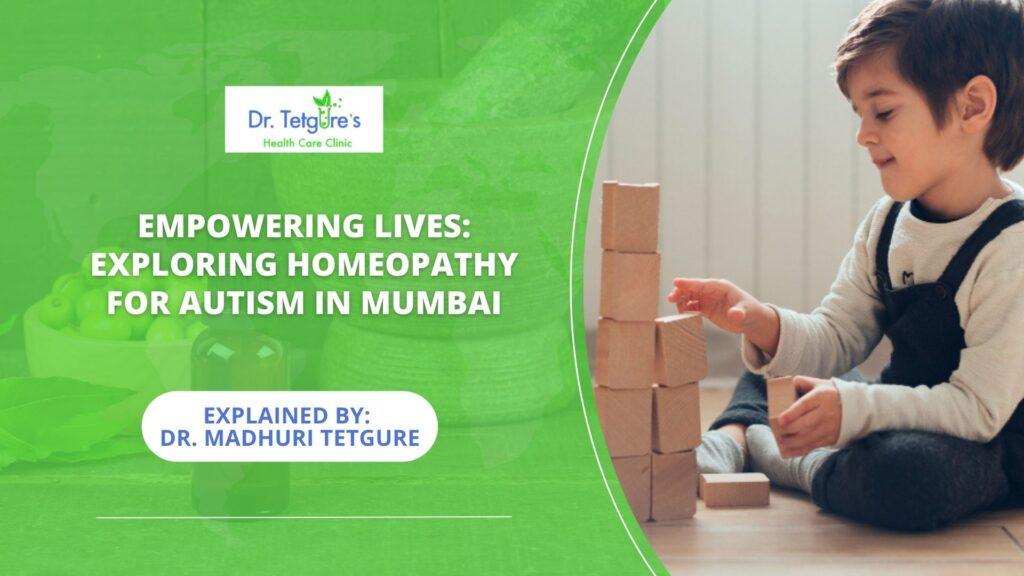The Key Principles of Homeopathic Treatment for Emotional Well-being
The Key Principles of Homeopathic Treatment for Emotional Well-being In today’s fast-paced world, where stress and emotional turmoil are common, seeking holistic approaches to emotional well-being has become increasingly important. Homeopathy, a natural system of medicine, offers unique principles and remedies tailored to address emotional imbalances. Let’s delve into the key principles of homeopathic treatment for emotional well-being and explore how this gentle yet effective approach can support mental and emotional health. Principle 1: Individualized Treatment One of the fundamental principles of homeopathy is individualization. Homeopathic remedies are prescribed based on a person’s unique emotional state, personality traits, and physical symptoms. This personalized approach recognizes that each experiences emotional challenges differently. For example, a person dealing with anxiety may exhibit symptoms such as restlessness, palpitations, or digestive issues, and a homeopath considers these nuances when selecting a remedy. Principle 2: Like Cures Like The principle of “like cures like” is central to homeopathy. This concept, also known as the Law of Similars, suggests that a substance that can cause symptoms in a healthy person can stimulate the body’s healing response in someone experiencing similar symptoms. In homeopathic terms, remedies are prepared through a process of dilution and succussion, making them safe yet potent in addressing emotional disturbances without side effects. Principle 3: Minimum Dose Homeopathy emphasizes the use of minimum doses to stimulate the body’s innate healing abilities. Remedies are highly diluted to avoid toxicity while still triggering a healing response. This principle aligns with the idea of gentle yet profound healing, making homeopathy suitable for individuals of all ages, including children and the elderly, without the risk of adverse reactions. Principle 4: Holistic Approach Homeopathy views the mind, body, and emotions as interconnected aspects of overall health. A homeopath considers not only the emotional symptoms but also the person’s lifestyle, diet, stressors, and past medical history. This holistic perspective enables comprehensive treatment that addresses the root cause of emotional imbalances rather than just alleviating symptoms temporarily. Principle 5: Healing from Within Unlike conventional medicine which often suppresses symptoms, homeopathy aims to stimulate the body’s self-healing mechanisms. By addressing the underlying cause of emotional distress, homeopathic remedies support long-term healing and promote a sense of balance and well-being. This approach resonates with the idea of empowering individuals to take an active role in their health and healing journey. Principle 6: Safety and Non-toxicity Homeopathic remedies are safe, non-toxic, and free from chemical additives. They are suitable for use alongside conventional treatments and are not known to cause dependency or withdrawal symptoms. This makes homeopathy a gentle yet powerful option for enhancing emotional resilience and managing stress-related conditions. Principle 7: Integrative Care Homeopathy complements other holistic therapies such as counseling, mindfulness practices, and lifestyle modifications. Integrative care approaches combine the strengths of different modalities to create a comprehensive treatment plan tailored to the individual’s needs. This collaborative approach enhances the overall effectiveness of addressing emotional well-being. Principle 8: Long-lasting Results While conventional treatments may offer temporary relief, homeopathy aims for lasting results by addressing the underlying imbalances that contribute to emotional distress. By supporting the body’s natural ability to heal and restore balance, homeopathic remedies can lead to sustained improvements in mood, resilience, and overall emotional well-being. Conclusion The key principles of homeopathic treatment for emotional well-being underscore its personalized, gentle, and holistic approach to healing. By addressing the root cause of emotional disturbances and stimulating the body’s innate healing abilities, homeopathy offers a safe, effective, and integrative option for supporting mental and emotional health. Embracing these principles can lead to profound shifts in one’s emotional landscape, promoting a sense of harmony, resilience, and vitality. Recent Posts The Key Principles of Homeopathic Treatment for Emotional Well-being The Key Principles of Homeopathic Treatment for Emotional Well-being • April 18, 2024 The Key Principles of Homeopathic Treatment for Emotional Well-being In today’s fast-paced world, where stress Read More » How Homeopathy Can Help Treatment of Diabetes? How Homeopathy Can Help Treatment of Diabetes? • March 11, 2024 How Homeopathy Can Help Treatment of Diabetes? Diabetes is a worldwide common condition which affects Read More » Unlocking the Potential: How Homeopathy Can Aid in the Treatment of Autism Unlocking the Potential: How Homeopathy Can Aid in the Treatment of Autism • March 11, 2024 Unlocking the Potential: How Homeopathy Can Aid in the Treatment of Autism Autism is a Read More » What is Parent Education Program (PEP)? What is Parent Education Program (PEP)? • January 25, 2024 What is Parent Education Program (PEP)? Have you noticed that the child is well behaved Read More » Pages Home 2 • February 28, 2024 Welcome to Dr Tetgure’s Healthcare Clinic We’ll Ensure You Always Get The Best Result. 16+ Read More » Home • February 27, 2024 Welcome to Dr Tetgure’s Healthcare Clinic We’ll Ensure You Always Get The Best Result. 16+ Read More »
The Key Principles of Homeopathic Treatment for Emotional Well-being Read More »










